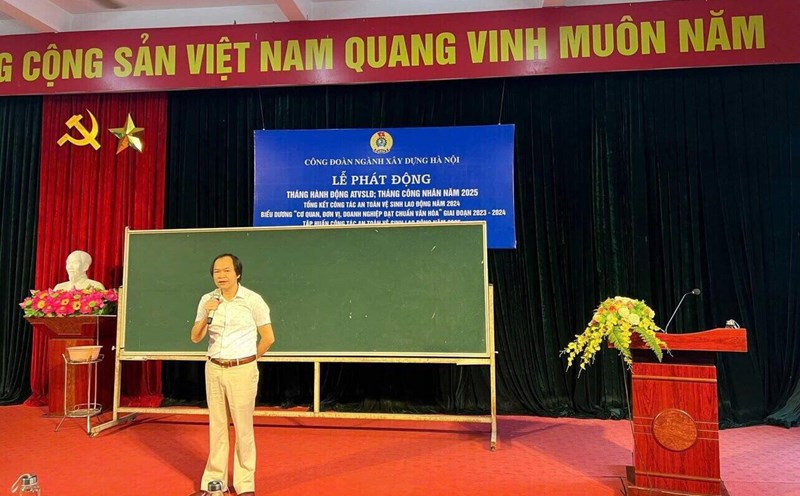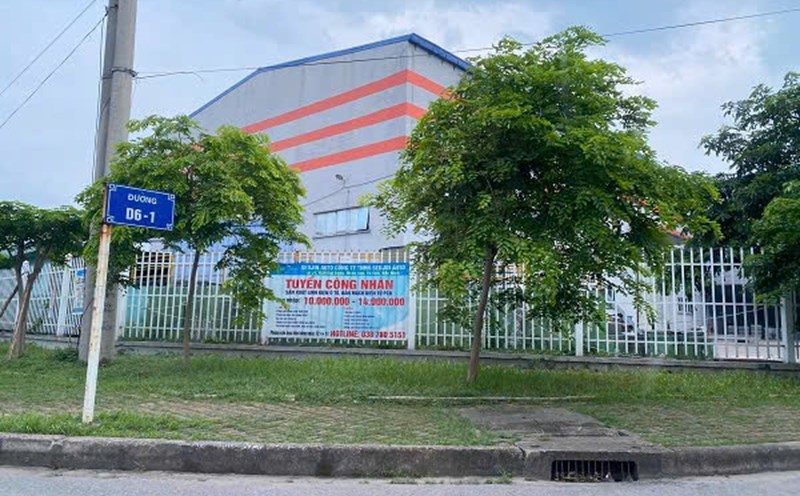Ms. Hoang Thi Hai - Department of Legal Policy and Labor Relations (Vietnam Textile and Garment Trade Union) stated the above reality at the workshop to collect comments on the draft report summarizing the implementation of the Law on Labor Safety and Hygiene at all levels of trade unions, organized by the Vietnam General Confederation of Labor on June 19.
Currently, Point b Clause 5 Article 74 of the Law on Occupational Safety and Hygiene stipulates that occupational safety and hygiene workers are allowed to spend part of their working time performing safety and hygiene tasks but are still paid for their time performing their duties and are entitled to responsibility allowances.
The responsibility allowance level is agreed upon by the employer and the Executive Committee of the grassroots trade union and is stated in the operating regulations of the safety and hygiene network.
According to Ms. Hai, regarding the responsibility allowance for occupational safety and hygiene, according to regulations, this allowance level is agreed upon by the employer and the Executive Committee of the grassroots trade union, while the occupational safety and hygiene network is proposed, established, improved and directed by the Executive Committee of the grassroots trade union; the employer decides to establish, improve and pay allowances.
"Therefore, in reality, the agreed responsibility allowance is very low, many units do not pay, are not uniform at units in the same industry, same field; not commensurate with the tasks that occupational safety and hygiene take on every day" - Ms. Hai said.
Moreover, the current law does not regulate the level of allowances for occupational safety and hygiene, leading to many businesses only establishing a occupational safety and hygiene network to deal with management agencies when inspecting and checking without paying attention, creating conditions for this force to operate. Safety and hygiene workers do not have allowances or allowances at very low levels, leading to a lack of encouragement for safety and hygiene workers to work responsibly and effectively.
Faced with that reality, Ms. Hai proposed to amend the law, regulating the floor (lowest level), while the higher level will be agreed upon by the employer and the union executive committee to get a higher allowance than this floor, creating consistency, uniformity and attaching responsibility to the safety of health workers in performing their duties.
Regarding this content, a representative of the Vietnam Airlines Trade Union said that if you refer to many places, you will find that "no place is like any other place".
The representative of the Vietnam Airlines Trade Union proposed to stipulate the lowest level based on how much is the minimum wage, by region, or by industry, thereby having a basis to answer employers about the issue of allowances for occupational safety and hygiene.











